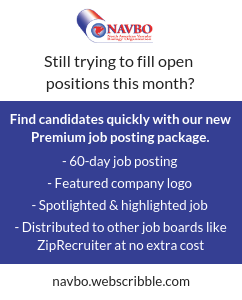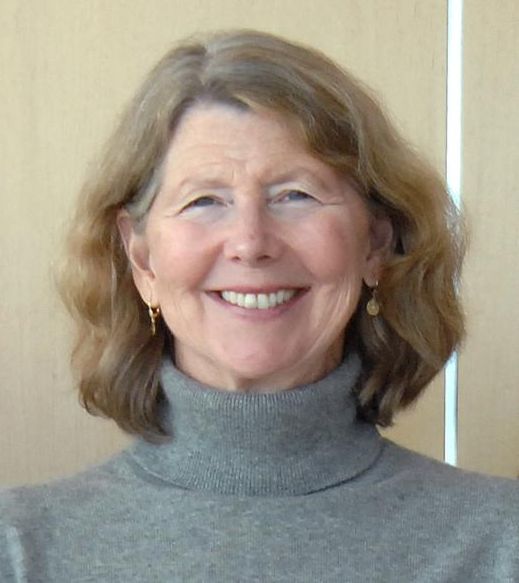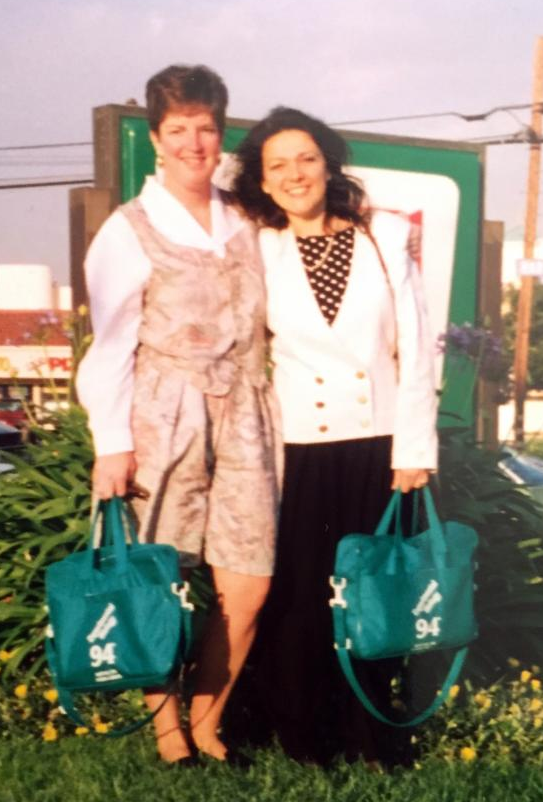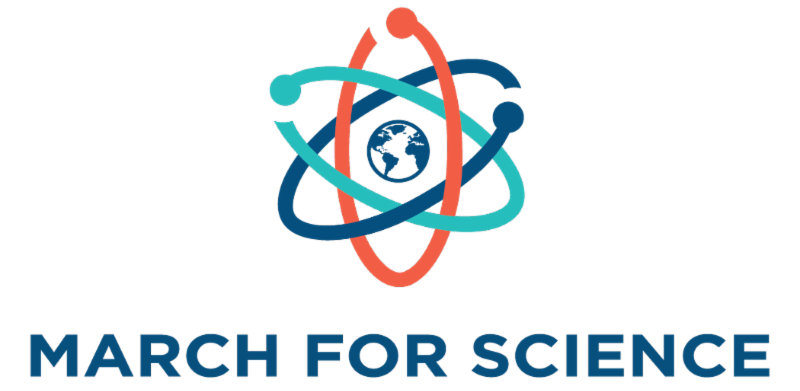Vascular Biology
Monterey, CA
Lymphatic Forum 2019
Austin, TX
May 30 - June 1, 2019
Vasculata 2019
Medical College of Wisconsin
July 13 - 18, 2019
|
UT Southwestern
Medical Center
|
|
Partner Network Advantage - New Job Board Feature
|

Why post your job on NAVBO's career center rather than going directly to the larger job networks?
Pricing on the mass job boards can vary, but to get a job noticed you typically have to sponsor it for $5 - $10 per day, which can add up quickly especially since you also pay for each click the job gets. When you add it all together, you could be spending up to $45 per day on your job posting. But, when posting a job on NAVBO's career center, you simply pay a flat fee! The Premium package includes our Exclusive Extended Partner Network - which means the jobs are broadcast to sites like ZipRecruiter and Jobs2Careers and more for a flat fee.
With special member pricing, you can post a job for as low as $300 with this Partner Network. You never pay for each click, just the flat fee on the NAVBO career center. In addition, the Premium package includes a 60-day job posting making it a great value. The Premium packages also offer features like having your company's logo featured on the career center homepage, having your job appear first in search results, and more.
|
Shop at Amazon?
Help Support NAVBO
|
Your data privacy and security are important to NAVBO. To that end, we have updated our privacy policy to reflect recent privacy and security regulation implementations and changes.
Please review our policy as time permits so you have a complete understanding of the data we have, why we have it, and how we use it.
Part of the updates relate directly to the European Union's new General Data Protection Regulation (GDPR) that went into place May 25. The GDPR seeks to improve the transparency of data usage and give end users more control over their own data. We believe these changes are important and will be compliant with the GDPR regulations.
Contact NAVBO if you have any questions or to
change your communication preferences.
Please note, you can unsubscribe to this newsletter at anytime by clicking on the SafeUnsubscribe in the footer.
|
|
 |
|
|
Today's Webinar features Joyce Bischoff
|
 Capillary malformations: From somatic GNAQ mutation to disrupted endothelial function Capillary malformations: From somatic GNAQ mutation to disrupted endothelial function
Join us on May 2 - at 1:00pm EDT for a webinar featuring Dr. Joyce Bischoff of Boston Children's Hospital, Harvard Medical School. Her presentation will be a more in-depth discussion of her presentation at Vascular Biology 2018. If you missed the meeting, register for the webinar! If you'd attended and want to learn more, register for the webinar!
NAVBO Webinars are free to current NAVBO Members.
Don't Miss These Upcoming Webinars:
June 13 - Daniel Greif, Yale University
July 11 - Kishore Wary, University of Illinois at Chicago
August 8 - Vicki Bautch, University of North Carolina at Chapel Hill
And don't forget you can watch archived webinars as well - go to
|
|
Vasculata 2019 - Register Today!
|

Vasculata 2019 - July 15-18
Medical College of Wisconsin
Register today (early bird deadline is June 3) -
Submit your abstract (deadline is June 3) -
|
We are currently looking for volunteers.
Consider being a Mentor for a Vasculata Attendee
This year's Vasculata will feature an exciting, new mentoring program. Attendees at Vasculata will receive the added benefit of connecting with a new mentor. This will be strictly online and mentors need not attend Vasculata. Once a trainee has registered for Vasculata, they will receive access to the mentor database. This will extend the educational benefits of Vasculata far beyond July 2019!
|
|
Travel Award to Atherosclerosis GRC
|
NAVBO will Present a $500 Travel Award to a Trainee Member
|
|
25th Anniversary - We Want to Hear From You!!!
|
 Help Celebrate 25 Years of NAVBO!
Help Celebrate 25 Years of NAVBO!
Then and Now
- share your story through photos, videos or simply through words.
See our current submissions of then and now.
To the right are Michelle Bendeck and Zorina Galis at NAVBO's first annual meeting at Experimental Biology in Anaheim in 1994.
We'd also love to see some of the developments in science and advances in vascular biology over the past 25 years, so please consider submitting samples of the old versus new in techniques, equipment, etc.
Join our Fun Fundraiser: Wish NAVBO Happy Anniversary in the upcoming Summer Newsletter!
Buy a half-page ($75) or quarter-page ad ($45) in the Newsletter to send a special message to your fellow NAVBO members! Include a photo of your lab members, a cool image (or a bunch of cool images) or just your smiling face - get creative with fonts and graphics and show your artistic side! Your ad dollars will be used to support current and future initiatives such as our webinars, travel awards, mentoring, online resources, outreach programs, as well as improvements in our service to you. If interested, contact
bernadette@navbo.org.
|
 Introducing ACS Pharmacology & Translational Science Introducing ACS Pharmacology & Translational Science
ACS Pharmacology & Translational Science
is a new journal from the American Chemical Society publishing high-quality, innovative research across the broad spectrum of biological sciences.
|

Register today - online registration closes May 29!
|
Cindy St. Hilaire
My name is Cindy St. Hilaire, and I'm an Assistant Professor in the Departments of Medicine and Bioengineering at the University of Pittsburgh and a member of the Pittsburgh Heart, Lung, and Blood Vascular Medicine Institute. My lab was established in July 2015 after my postdoctoral fellowship at the NHLBI, and these last 3.5 years have been both the most rewarding as well as the most challenging of my professional life; starting your lab is an exciting yet surreal experience. You'll be called upon to develop and master skills that have little relation to your previous training, and in the first few years resolving that main conundrum will reveal many of your hidden character strengths and weaknesses. I hope sharing my experiences thus far can help a fellow new PI.
Picking the right place - You really need to define for yourself what circumstances will create your ideal environment, what circumstances are less than ideal but workable, and what conditions constitute a deal-breaker. Obviously, having the tools, cores, and resources that you need to conduct your research are essential, but those alone will not guarantee your scientific success or happiness. Consider the one-on-one meetings during interviews as a two-way street; yes, they are interviewing you, but you need to interview them as well. Do not be afraid to ask questions that will help you determine if the institution is a right fit for you. Ask about life outside the lab, where do people live? What do they do outside of work? How good/bad is the commute? Besides talking about science, can you see yourself having coffee or lunch with the people in your department? Or doing social activities? Do them seem enthusiastic or stressed? Competitive or collaborative? Very important: does the department have a solid history of fostering young PIs through to tenure, or is there a suspiciously high failure rate? Are people smiling in the hallways or do they stare at their feet as they walk by? Academic departments and institutes have pretty defined cultures, and they can vary widely from school to school, make sure the one you join is a culture that suits you.
Setting up shop - Start your lab in as organized a way as possible. I moved into new space on a freshly renovated floor, so my first month was a frenzy of purchasing. I quickly realized a more accurate job title for my new career was "small business owner." I needed to meticulously keep track of what I had ordered, what had arrived, cost, etc., so I set up an excel sheet of all my purchases. We still use this sheet; literally everything I have bought for the lab is on it. Not only do I know exactly how much remains on all my accounts, but when it is time to write grants, I know exactly how much we spend on reagents, consumables, etc., so can budget accordingly. Similarly, as you write up protocols, receive reagents, chemicals, antibodies, etc., start an electronic database that everyone has access to and can update. I use Lab Guru, but there are several types of software available.
Take the time to write a lab manual. Put in writing all of your expectations for your employees - I outlined how I want lab notebooks kept, how electronic data should be named and filed, cleaning and organizing procedures (e.g., lab space, reagents, freezer boxes), safety, data analysis and ethics, attendance (e.g., for lab, meetings, seminars), sick and vacation time, and general advice for conducting experiments. It is immensely helpful when onboarding new members; they start with a clear view of your expectations for their conduct, and it helps maintain some continuity of your overall lab culture. I also have everyone start with the same experiment: grow human cells, and run a qPCR, western blot, and immunofluorescent stain. With this you can very quickly assess their skillset, they learn how and whom to ask for help and also learn where everything is in the lab and how to operate the major equipment.
Staff & Students - Hiring is so hard when you are new. Most likely, you will have some sort of personnel disaster and it will make you question every decision you have made in your nascent career. Do not worry! Literally every new PI I have spoken with has some horror story, and we all get through it. There is no perfect way to learn, on the fly, a management style that makes your employees happy and productive and loyal and satisfied. You'll mess up as you figure this out. I've found that there is an amazing community of new PIs on Twitter and on the Slack platform (
https://newpislack.wordpress.com/), who can offer advice, support, and lots of laughs. To help in recruiting, spend time making a sleek website for your lab, and set up a Twitter account to help in your advertising. Save costs by sharing advertising space in journals with a few colleagues.
When it comes to the hiring interview, make an agenda for the day and have the candidate meet with a few faculty that have a bit more experience at this than you. Pay for the candidate to go to lunch with 2-3 other people at their level (other techs, other postdocs, etc.), and be sure to get feedback about your candidate from them - it is amazing what you will learn! I have made a list of ~30 questions that I now ask every person I interview. This helps to keep me calm during the process and also allows me to more easily compare candidates. If you are interviewing a postdoc, have several colleagues join you for their talk and do not be afraid to ask tough, but fair, questions. If you have any hesitations go with that feeling - you are probably not wrong.
Saying YES - I feel like a lot of people will tell you that you should say "NO" to everything, so as not to be overwhelmed with commitments; I do not fully agree with this. It's true that the opportunities for service to your department, your university, your journal affiliations, etc., will be essentially limitless, and you'll need to triage. Some useful guidelines: as a brand-new faculty member, you first need the people in your department and school to get to know you, and importantly, like and trust you - your CV got you in the door, now your attitude, character, and actions will influence how they see you. Say "YES" to the higher profile things that others will take notice of. Offer to take on responsibilities but only if you can be sure to complete the task on time and in order. You want people to know your name and that you are dependable, knowledgeable, and a team player. Similarly, go to as many conferences as possible to network. For tenure you will need 15-30 letters written by colleagues who do not directly work or collaborate with you. Start making these connections now. Identify and meet the people who sit on the study sections that you plan on submitting your grants to. While you are not allowed to talk specifics, you can certainly ask about whether your research is suited for a particular study section, if the models/tools/techniques you are planning to use in your R01 are appropriate, etc. Some of the best feedback I have gotten has been at poster sessions where I was presenting the foundations of what became my first R01.
Build a support/mentoring team - Start thinking about your grant submission early. Write an Aims page 6 months in advance of the deadline and set up a meeting with colleagues who have successful grant experience. Present your Aims page to them with the data you have in hand and ask them to tear it apart. Hopefully they will, and your grant will be all the better for it. This early timeline is essential because mostly likely there are key experiments that you haven't thought of and probably can't be done on too short of notice.
Figuring out what works for you - I am still trying to perfect this. Figuring out how to optimize your time is exceedingly important. For a while I would be in my office at 7AM so I could go to yoga at 5:30, but then the strictness of having to be out the door by a certain time was stressing me out, so I switched to working out in the morning so I could have afternoon flexibility. I also learned that I write better before lunch, so I've blocked off my schedule and don't have any meetings before 12. I also utilize different apps and tools; I use the Pomodoro method when I have any writing tasks, this helps me to not spend too much time on small things, but also keeps me focused on longer projects. My lab uses the project management tool Trello to organize our projects. We use it to outline and assign experiments in a visual manner. We can literally watch as the experiment progresses from idea, to active experiment, to final figure for the paper. Trello helps keep me on top of everything and my team says that it helps them to see the bigger picture. Lastly, I'm a big fan of the Bullet Journal method. I never have that pit-in-the stomach feeling that I am forgetting something because all tasks big and small are listed. And I love the feeling of checking things off.
|
Pre-med track draws but cannot always retain women interested in medical careers
Female high school students express more interest in medicine than do their male peers. Moreover, young women earn better high school grades and more frequently attend college. Discouragingly, this trend blunted by what is described as the "gendered nature" of attrition in pre-med science courses, according to a study recently published in Educational Researcher. Investigators parsed the academic records of more than 8,250 pre-med students enrolled in typical pre-med courses between 2008 and 2016 at a large, public four-year institution. The study revealed that women were more likely to drop out of the pre-med track, even when earning the same high grades as their male peers. The study's authors suggest that academic performance was not the biggest deterrent for women, but other factors, perhaps a lack of confidence in their abilities, contributed to the higher rates of abandoning the medical school trajectory.
|
|
Summer Training for Junior Faculty
|
Programs to Increase Diversity Among Individuals Engaged in Health-Related Research
The NHLBI PRIDE Program is offering nine unique Summer Institute programs with intensive mentored training opportunities to enhance the research skills and to promote the scientific and career development of trainees. Trainees will learn effective strategies for preparing, submitting and obtaining external funding for research purposes, including extensive tips on best practices. Trainees will also be able to apply for small grants to support mentored-pilot research projects. Research emphasis varies by program.
Eligible applicants are junior-level faculty or transitioning postdoctoral scientists with background deemed under-represented in the biomedical or health sciences. Research interests should be compatible with those of the National Heart, Lung, and Blood Institute (NHLBI) in the prevention and treatment of heart, lung, blood, and sleep (HLBS) disorders.
Apply early - there are a limited number of positions and admission will close when spaces are filled.
|
May 4, 2019 in New York City 
This year's flagship march will be held in the Big Apple with satellite marches in dozens of cities. For more information on the March in NYC,
follow this link. To find a satellite march near you,
see this web page. They are also seeking people to organize more marches, if interested
click here.
|
Welcome to our New Members:
Jasper Demandt, Maastricht University
Amirali Selahi, Texas A&M University
Ao Shi, Mayo Clinic
Judith Sluimer, Maastricht University
Kim van Kuijk, Maastricht University
|
|
Recent Publications by NAVBO Members
|
| Non-invasive functional molecular phenotyping of human smooth muscle cells utilized in cardiovascular tissue engineering
Acta Biomaterialia
Smooth muscle cell (SMC) diversity and plasticity are limiting factors in their characterization and application in cardiovascular tissue engineering. This work aimed to evaluate the potential of Raman microspectroscopy and Raman imaging to distinguish SMCs of different tissue origins and phenotypes. Read more Bone morphogenetic protein and blood vessels: new insights into endothelial cell junction regulation
Current Opinion in Hematology
PURPOSE OF REVIEW: BMP signaling is an important regulator of vascular development and homeostasis, and perturbations of BMP pathway components are linked to vascular disease. However, until recently BMP's broad requirements in many developmental programs delayed cause-and-effect and mechanistic studies of its vascular role in vivo. Read more |
USDA Research Arm to Eschew Use of Cats as Experimental Subjects
The US Department of Agriculture's Agricultural Research Service has decided to discontinue the use of cats in all ARS research. As reported by the National Association for Biomedical Research (NABR), the ARS has been the target of an extended animal rights campaign waged by the White Coat Waste Project. Among other projects, the ARS has long studied transmission and pathophysiology of toxoplasmosis in cats. NABR is also following a proposed rule by the USDA's Animal and Plant Health Inspection Service to modify requirements for licensing in research using dogs.
HHS and NIH Leaders Testify to Congress on Biomedical Research Funding
Members of the senior NIH leadership, including Director Francis Collins and five institute directors, appeared on Capitol Hill April 2 to testify before the House Appropriations Labor-HHS Subcommittee. At issue was the president's proposed FY2020 budget, which calls for cuts in the NIH budget characterized by House members as out of step with Subcommittee's bipartisan support of medical research. Two days later, the Senate Labor-HHS Subcommittee heard budget-related testimony from Health and Human Services (HHS) Secretary Alex Azar. More details are available in the AAMC's Washington Highlights.
Stable Cardiovascular Mortality in States that Expanded Medicaid
The expansion of Medicaid occurring under the Affordable Care Act (ACA) has been associated with reduced deaths attributable to cardiovascular disease. A study, reported in MEDPAGE TODAY and using data from a Centers for Disease Control mortality database, indicated that cardiovascular mortality rates among middle-age adults was stable in states opting for Medicaid expansion, while mortality increased in non-expansion states (176.3 to 180.9 deaths per 100,000 residents per year; P=0.001). The biggest impact in cardiovascular deaths was found in non-metropolitan counties and in areas with the most residents living in poverty.
|
|
|